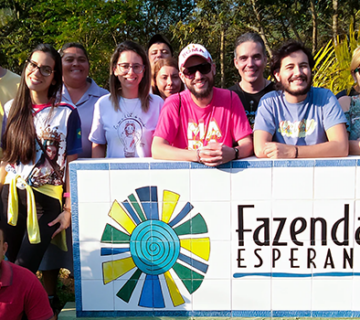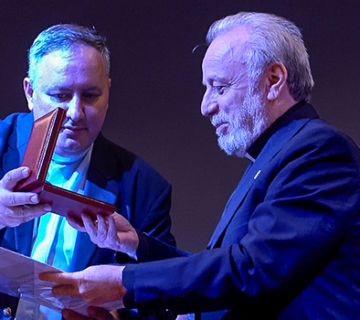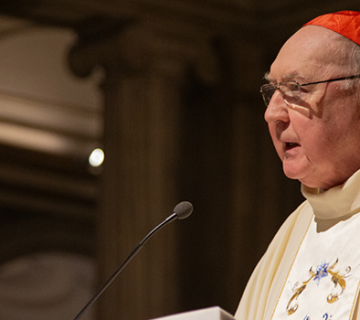 In 2011, 250 young people have been helped at every level of their education, from elementary schools up to specialised post university courses, in 14 countries around the world: Bosnia, Croatia, Macedonia, Moldova, Romania, Serbia, Lebanon, Philippines, Brazil, Colombia, Ecuador, Paraguay, Peru, and Uruguay.
In 2011, 250 young people have been helped at every level of their education, from elementary schools up to specialised post university courses, in 14 countries around the world: Bosnia, Croatia, Macedonia, Moldova, Romania, Serbia, Lebanon, Philippines, Brazil, Colombia, Ecuador, Paraguay, Peru, and Uruguay.
Allowing young people to study and train professionally is without doubt an investment for the future. The experience of Action for a United World and the Economy of Communion project show that it is already possible to live the communion of goods, and there is mutual giving and receiving.
 They write for example from Cebu, in the Philippines: “Every Saturday, some students go to our social centre to do tutoring to others that are younger: the students at university help those of the secondary school, and the students at the secondary school help those at the primary school that are in difficulty. In their free time they also help with the various social programmes of the centre, cleaning the premises, feeding the smaller ones, distributing scholastic materials at the beginning of the year.”
They write for example from Cebu, in the Philippines: “Every Saturday, some students go to our social centre to do tutoring to others that are younger: the students at university help those of the secondary school, and the students at the secondary school help those at the primary school that are in difficulty. In their free time they also help with the various social programmes of the centre, cleaning the premises, feeding the smaller ones, distributing scholastic materials at the beginning of the year.”
And from Brazil: “I am 20 years old, and I have 3 brothers, one of them has a physical disability. This makes us live more united as a family and helps us grow in facing life with simplicity and openness towards the needs of others. At the beginning of this year I understood that I could live the Gospel in a more radical way, both at university and during my free time, and this would make a difference in my life. How could I put this decision into practice? I got the idea of dedicating myself to voluntary work, because in this way I would be able to participate in the reciprocity typical of the Economy of Communion, through which I receive my scholarship, and “in exchange” give my free time to other persons in need. So I began to work in a home for the elderly that has more than 50 inmates. I carry out activities with them to improve their quality of life. I set myself the objective not to look at them as “aged” in general, but to get to know each one with her life history, her family, to understand what they really desire.”
 “I attend the nursing school at the University of Para’. The profession I have chosen is an opportunity to be of service to others. Sometimes I find myself in situations where I risk contagion, but I try to intervene always in favour of those who are in need. Once I was given the responsibility to care for a person who had committed crimes. For me this was simply a person who needed care. My attitude drew the attention of my colleagues who reflected on the behaviour that is required from our profession.”
“I attend the nursing school at the University of Para’. The profession I have chosen is an opportunity to be of service to others. Sometimes I find myself in situations where I risk contagion, but I try to intervene always in favour of those who are in need. Once I was given the responsibility to care for a person who had committed crimes. For me this was simply a person who needed care. My attitude drew the attention of my colleagues who reflected on the behaviour that is required from our profession.”
 «“I am aware that the objectives of the Economy of Communion, besides helping persons in difficulties, is also “the formation of new men and women”, so I try to be a sign of communion between my student friends, by circulating between us the knowledge and experience of each one of us. I do not own my books, and I try to leave in a good state the learning material that has been given to me for my use. But others do not have the possibility of buying, not even the hand outs, so I share this material with them. This is what I can do so that others can study. I feel that the achievements made by my study do not belong only to me, but to all those who collaborate in the project.”
«“I am aware that the objectives of the Economy of Communion, besides helping persons in difficulties, is also “the formation of new men and women”, so I try to be a sign of communion between my student friends, by circulating between us the knowledge and experience of each one of us. I do not own my books, and I try to leave in a good state the learning material that has been given to me for my use. But others do not have the possibility of buying, not even the hand outs, so I share this material with them. This is what I can do so that others can study. I feel that the achievements made by my study do not belong only to me, but to all those who collaborate in the project.”


 Italiano
Italiano Español
Español Français
Français Português
Português


